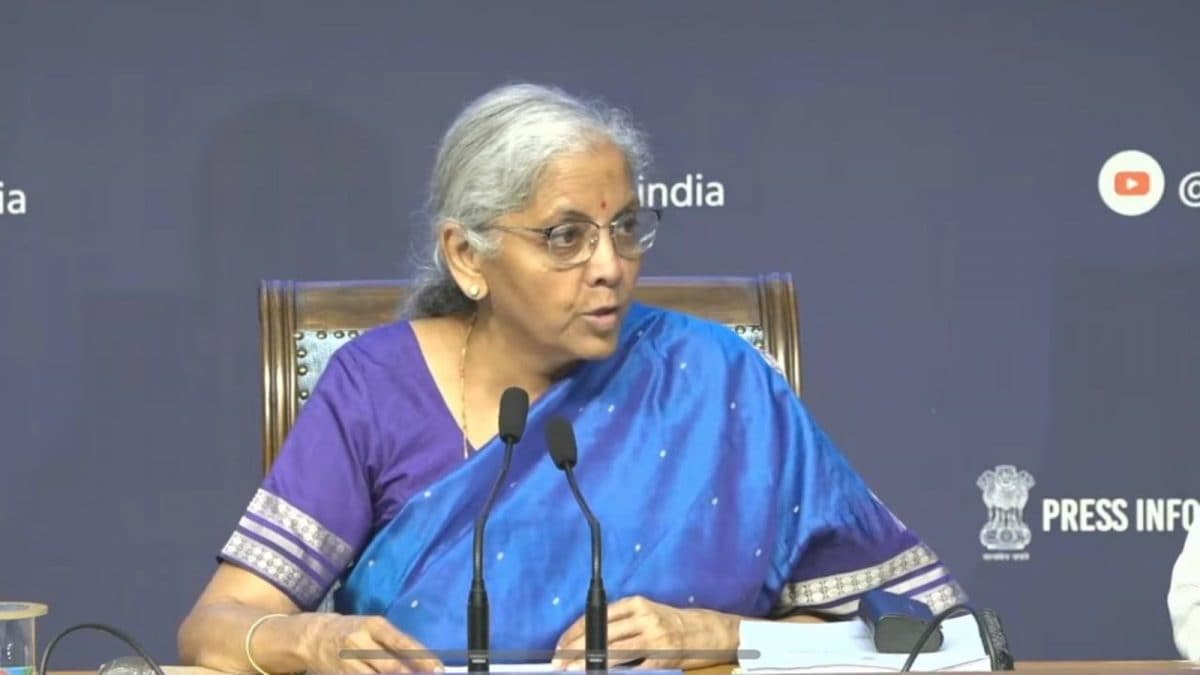Last Updated:
‘All individual health insurance, along with reinsurance thereof; and all individual life insurance, along with reinsurance thereof, have been exempt from GST,’ as per a release.

Finance Minister Nirmala Sitharaman announces GST 2.0, after the 56th meeting of the GST Council.
The GST Council, chaired by Union Finance Minister Nirmala Sitharaman and comprising ministers from all states, on Wednesday decided to exempt health and life insurance premiums from the levy of goods and services tax (GST), the Union finance minister announced on Wednesday.
This will be effective from September 22, 2025, the first day of Navratri.
“All individual health insurance, along with reinsurance thereof; and all individual life insurance, along with reinsurance thereof, have been exempt from GST,” according to official release.
Currently, health and term insurance products attract a GST rate of 18 per cent.
As a result of the GST exemption, health and term insurance premiums are expected to become cheaper now.
How Much Will Your Insurance Premium Fall?
According to a report by HSBC Securities and Capital Markets (India), the full exemption could reduce health insurance premiums by around 15 per cent. The expense ratios of insurers will also play an important role in determining transmission.
However, the government may face a revenue shortfall of $1.2-1.4 billion annually from GST on premiums if exemptions are granted, noted the report.
While lower premiums are expected to boost demand, insurance companies could see a 3-6 per cent impact on combined ratios (CR) in the retail health segment, primarily due to slower repricing of renewals which may take 12-18 months.
56th GST Council Meeting
The 56th meeting of the GST Council began here on Wednesday and it considered multiple scenarios for GST reductions.
The GST Council also cleared the Centre’s proposal to streamline the indirect tax structure into a dual slab of 5% and 18%, with a special 40% slab earmarked for sin and luxury goods. This overhaul will replace the existing four major slabs — 5%, 12%, 18%, and 28% — with a simplified two-rate system. Under the new framework, essential or “merit” goods will be taxed at 5%, while most goods and services will fall under the 18% standard rate.
It also cut GST on a large number of daily-use products, from groceries and medicines to cement and small cars. At the same time, sin goods and luxury products will become significantly more expensive as the GST Council raised rates on tobacco, fizzy drinks and high-end vehicles.

Haris is Deputy News Editor (Business) at news18.com. He writes on various issues related to personal finance, markets, economy and companies. Having over a decade of experience in financial journalism, Haris h…Read More
Haris is Deputy News Editor (Business) at news18.com. He writes on various issues related to personal finance, markets, economy and companies. Having over a decade of experience in financial journalism, Haris h… Read More
Read More







